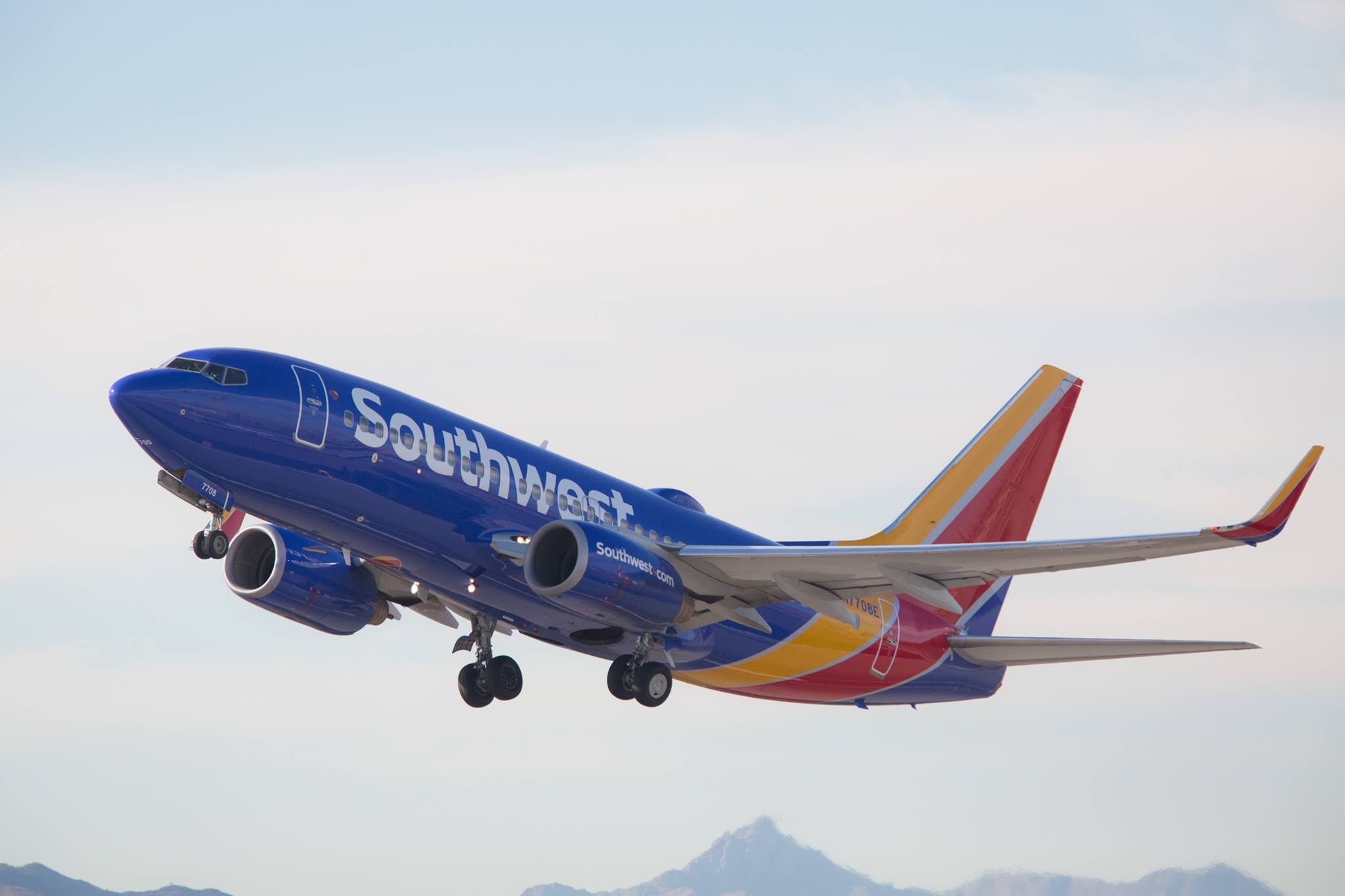Investors have been getting conflicting signals about the airline industry in recent weeks. On the one hand, encouraging early data about vaccines under development have bolstered hopes that a vaccine to protect against COVID-19 could come to market in record time. On the other hand, the massive quarterly loss reported by Delta Air Lines (DAL +1.97%) this week highlights the depth of airlines' near-term challenges.
With this backdrop, U.S. airline stocks have settled into a trading range well above the lows plumbed in late March but below the highs briefly reached after a monster rally between mid-May and early June. Shares of Delta, American Airlines (AAL +2.34%), and United Airlines (UAL +3.27%) are all down more than 50% year to date, while low-fare giant Southwest Airlines (LUV +3.14%) has fared somewhat better, falling 34% year to date.
Airline Stock Year-to-Date Performance, data by YCharts.
Let's take a look at whether these recent developments make it a good time to buy airline stocks.
Good news on the vaccine front
Over the past week, throughput at TSA checkpoints has averaged 26% of year-ago levels. While that's a whole lot better than mid-April, when the TSA was only screening 4% as many people as it was a year earlier, the lesson is that as long as the pandemic is raging, air travel demand will remain far below pre-coronavirus levels.
This means that airlines' medium-term prospects depend heavily on the development of safe and effective vaccines and COVID-19 treatments. As a result, airline stocks soared on Wednesday, after biotech company Moderna said that its vaccine candidate generated a strong immune response in all 45 patients included in an early testing round. A phase 3 trial for that vaccine will begin later this month.
A vaccine developed by researchers at the University of Oxford has also shown promise. It began large-scale trials in the U.K. in late May, with a 30,000-person study in the U.S. set to launch next month. Moreover, these are just two frontrunners among dozens of serious vaccine candidates.
Still, it is quite common for drugs and vaccines to look promising through Phase 2 trials but run into problems during Phase 3 trials. It's also possible that -- similar to flu shots -- a vaccine could be effective at reducing the severity of the disease without completely preventing infection or transmission. The FDA's target is fairly modest, calling for vaccines to achieve at least 50% efficacy to be approved.
In practical terms, this means that COVID-19 fears could linger even after a vaccine becomes available. Until the vaccine generates a track record of success or the pandemic recedes for other reasons (e.g. better hygiene practices and improved contact tracing), many Americans may remain reluctant to travel by air.
Near-term losses remain significant
On Tuesday, Delta Air Lines reported an adjusted pre-tax loss of $3.9 billion for the second quarter, as adjusted revenue plunged 91% year over year. Moreover, like United Airlines, Delta has experienced a slowdown in booking momentum this month following rapid sequential growth from week to week during June.

Image source: Delta Air Lines.
As a result, Delta expects July daily cash burn to be similar to the $27 million per day it burned in June. United Airlines and American Airlines have been burning cash at a similar rate. American described its daily cash burn at the end of June as "less than $35 million", while United said last month that it expected daily cash burn to average $40 million in the second quarter and $30 million in the third quarter. Southwest Airlines, which is about half the size of its full-service airline rivals, has estimated June cash burn at $20 million per day.
All four top U.S. airlines are working aggressively to reduce costs by offering early retirement options and voluntary buyouts for staff, while preparing the ground for layoffs or furloughs later this year. They are also taking a hatchet to discretionary spending. Meanwhile, Delta and American have each retired several small or older aircraft subfleets to reduce complexity and unlock maintenance savings and productivity gains.
Delta has explicitly set out a goal of reaching breakeven by year-end thanks to these measures. However, management acknowledges that getting there will require a significant improvement in demand relative to recent levels. Depending on the status of the pandemic, that may prove overly ambitious.
Choose wisely
Deciding whether to invest in airline stocks today requires balancing the sharp year-to-date declines in their share prices against their increased debt loads, ongoing cash burn, and the risk that vaccines don't become widely available until 2022 or later, prolonging the current period of extremely weak demand.
American Airlines and United Airlines are particularly vulnerable. They have plenty of cash for now, but both airlines entered 2020 with a lot of debt (especially American). Furthermore, their subpar historical profitability and dependence on international travel (especially United) and business travel -- both of which are likely to recover more slowly than domestic leisure demand -- could lead to a slow earnings recovery.
Shares of Delta Air Lines and Southwest Airlines are far more attractive. While both stocks carry a lot of risk -- after all, the companies are still burning cash every day -- Southwest Airlines has a fortress balance sheet and Delta's balance sheet is quite solid, too. That should give investors some comfort that both airlines will survive the COVID-19 pandemic without taking on an unsustainable amount of debt, positioning them to profit when air traffic demand eventually rebounds.










